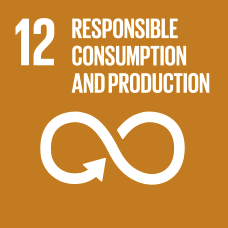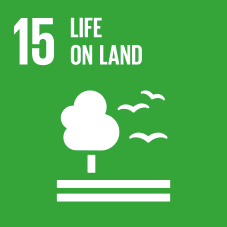DESCRIPTION OF THE POLICIES AND PROCEDURES OF DUE DILIGENCE
Thus, the Policy addresses the following issues:
- Identifying, supervising and monitoring of environmental aspects.
- Identifying and ensuring compliance with applicable laws and other regulatory requirements.
- Setting and pursuing improvement goals to minimise external and environmental impacts and keep a balance between business growth and environmental protection.
- Applying environmentally-friendly technologies.
- Monitoring the environmental impacts of operations.
- Using fuels and natural resources in an efficient way.
- Implementing remediation and reclamation measures.
- Supervising contractor operations.
- Raising employee awareness and qualifications in the area of environmental protection.
The PGNiG Group’s operations affect the natural environment along the entire value chain. Considering the global environmental challenges related to climate change, rational management of natural resources and circular economy, the PGNiG Group takes steps to minimise its environmental impacts. Guidance for such initiatives is set forth in the PGNiG Group Sustainable Development Strategy for 2017−2022, which aims to:
- Implement, maintain and improve the environmental management system as a tool for implementing the QHSE Policy across the PGNiG Group.
- Use environmentally-friendly technologies and techniques reducing emissions and waste and wastewater output, and enabling efficient use of natural resources in order to meet new challenges, including those presented by circular economy.
- Ensure that the PGNiG Group’s suppliers and contractors comply with the highest environmental protection standards and use environmentally-friendly technologies and solutions.
- Design, execute and participate in research projects on new technologies to improve the environmental and economic performance of work carried out by the PGNiG Group.
- Protect biodiversity in operations affecting protected habitats and species.
- Minimise the PGNiG Group’s environmental impact through land reclamation (including with regard to past operations and the related historical contamination).
- Enhance external communication concerning the PGNIG Group’s environmental standards (environmentally-friendly solutions and technologies) along the entire value chain (e.g. organising educational campaigns addressed to key stakeholders, i.e. public institutions, decision-makers, the media, local communities).
- Conduct promotional and awareness campaigns for customers who are switching to gas fuel in their heating systems.
Environmental management system at the PGNiG Group
The operation of the environmental management system according to the PN-EN ISO 14 001 standard is based on the identification of environmental aspects of the organisation:
- Emission of air pollutants.
Emissions of particulates and gases, such as nitrogen oxides, sulfur oxides and carbon oxides, are especially relevant to PGNiG TERMIKA, which produces electricity and heat from coal, natural gas and biomass. Methane can be released into the atmosphere as a result of emergency events, such as pipeline leaks, or blowback and flaring operations.
- Noise emissions.
Most industrial processes involve noise emissions, and in the operations of Geofizyka Toruń also involve vibrations.
- Land and groundwater contamination.
Its occurrence may be explained by the presence of contaminants generated in past activities, spills/leaks of petroleum or hazardous substances during drilling and other processes, operation of machinery and equipment, failures, or leaks from storage tanks or pipelines.
- Generation of hazardous waste.
Waste generation is inherent in the PGNiG Group’s operations, but deployment of latest technologies and use of environmentally-friendly materials and products help to minimise the volume of generated waste.


